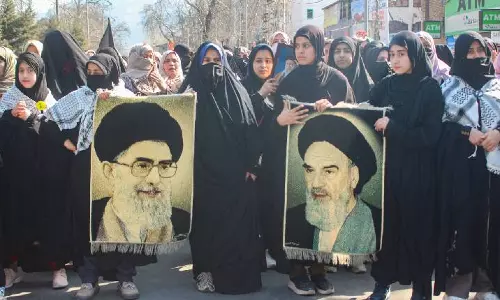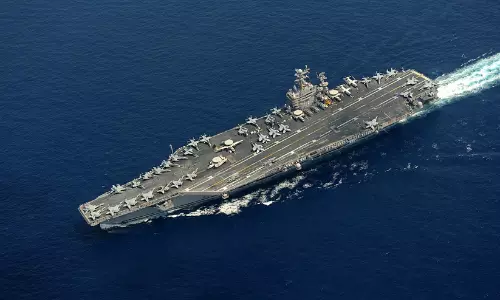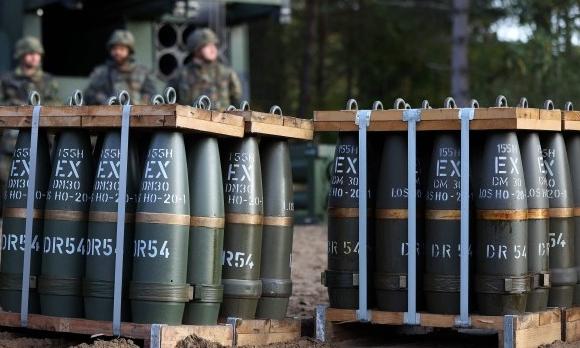
US weapon stockpiles for Israel raise concerns amid increasing civilian killings in Gaza
text_fieldsAmid the increasing civilian deaths due to the relentless bombardment by the Israeli forces on Gaza, questions have been raised about the role the US plays in equipping Israel with weapons, stocking billions of dollars' worth of weapons primarily for emergency situations.
The stockpile, known as the War Reserve Stocks for Allies-Israel (WRSA-I), established in the 1980s, was originally intended to supply Israeli forces during Middle East conflicts rapidly. Israel has been granted access to this arsenal over the years, leading to concerns about transparency and accountability, according to a report published in The Guardian.
Former US officials familiar with the situation have revealed that the stockpile not only facilitates expedited arms transfers to the Israel Defense Forces (IDF) but also shields the movement of US weapons from public and congressional oversight.
While the exact contents of WRSA-I remain classified, it is believed to be filled with so-called "dumb munitions" – unguided bombs dropped from aircraft. The stockpile's high levels of unguided bombs drew criticism in 2020, with some considering it obsolete due to a shortage of precision-guided munitions (PGMs).
Amid the current conflict in Gaza, Israel's reliance on unguided munitions has raised concerns about the impact on civilian casualties. Approximately 40-45% of the munitions used by Israel have been identified as unguided, posing risks in densely populated areas. Experts argue that this contradicts the IDF's claim of minimizing civilian casualties.
One former senior US official familiar with WRSA-I mentioned that the US provides Israel with air-to-ground munitions, stating, "We'll give them whatever they need." However, concerns arise regarding the lack of transparency regarding the types and quantities of arms provided to Israel. In October, Axios reported a transfer from WRSA-I, revealing the supply of 155mm artillery shells intended for Israel's ground campaign in Gaza.
The use of 155mm artillery shells is particularly worrisome due to their hazardous nature, releasing 2,000 lethal fragments each and having accuracy issues over distance. Images from Gaza police's explosive ordnance disposal team suggest that these shells may have been used in the conflict, though their origin is unclear.
Critics argue that the expedited process of transferring weapons from WRSA-I raises red flags, as it may bypass standard review processes, including those related to human rights and regional balance. The Pentagon acknowledges using foreign military financing and sales authorities to expedite security assistance, further contributing to concerns about transparency and accountability.
The Biden administration's proposed changes to WRSA-I, relaxing rules on the types of weapons and increasing flexibility in transfers have faced opposition from lawmakers. Critics, including former State Department officials, express worry that these changes could undermine the conventional arms transfer policy review, potentially escalating the conflict.
Senators, led by Elizabeth Warren, have voiced concerns about the proposed changes hindering their ability to assess whether US assistance contributes to disproportionate civilian harm.
As the White House seeks to use its supplemental spending request to further relax rules related to WRSA-I, questions linger about the strategic sense of these arms transfers and their impact on US national interests and regional stability.
In a complex geopolitical landscape, the revelation of the WRSA-I stockpile raises important questions about the extent of US support for Israel, the transparency of arms transfers, and the potential implications for the ongoing conflict in Gaza.























